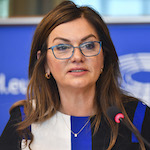
Raising awareness about the importance of vaccination in Europe for public health
Vaccination can surely be considered as a great success. It helped to almost exterminate such diseases as measles, smallpox, whooping cough or diphtheria that hurt or killed millions of people in the past. Vaccination saves up a huge amount of human lives every year.
It also provably offers an important protection for the youngest and oldest members of our society, as well as for those people who due to their health condition cannot be vaccinated and are most vulnerable to illness. Vaccination is the crucial part of our modern public health care systems. It not only saves human lives, but also reduces health care costs.
Unfortunately, vaccination has become the victim of its own success. Suppression of some diseases started to be taken by society as for granted and society than mistakenly stopped feeling the risk of those. It is still true that diseases that can be prevented by vaccination still pose a great risk. People also have become more concerned about possible side effects of vaccination. The result is that there are doubts about the need to vaccinate and the level of coverage decreases which leads to the weakening of herd immunity.
Confidence in vaccines is crucial.
Decisions of individuals not to vaccinate, affects the whole entire population. The fact is that if we want to continue in eliminating diseases and aim to protect people who cannot be vaccinated, because they are too young, too old or too sick, we all need to vaccinate.
Conducted surveys have shown that 85 % of EU citizens considered vaccination as an effective instrument how to prevent infectious diseases. Around 50 % of Europeans vaccinated in the last five years and almost 80 % of EU citizens are discussing the possibilities of vaccination with health care experts, whom they trust.
On the other hand 48 % of Europeans mistakenly believe that vaccines can often cause serious side effects and 38 % think vaccines can cause them the diseases they are originally protecting them from. 34 % do not see the need to be vaccinated and 29 % think vaccination is only necessary for children.
This is one of the results of disinformation campaigns focused on vaccination, which were during this year placed by World Health Organization among the top 10 threats to public health. These data confirm that effective awareness rising and combat against the disinformation is necessary for the efforts to increase the level of vaccination.
We need to support further research regarding the improvement of vaccines and the need to ensure equal access to vaccines for all.
We also have to support health workers and empower them so that they can build on trust that people have to them.
They are the frontline when it comes to vaccination and are helping to increase vaccine acceptance and counter vaccination myths.




